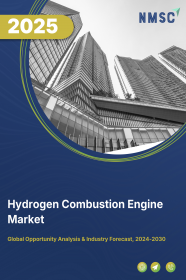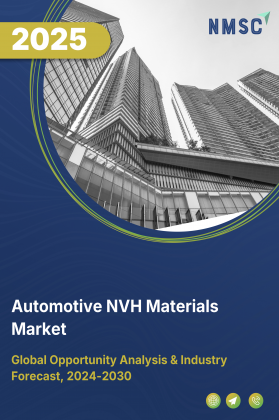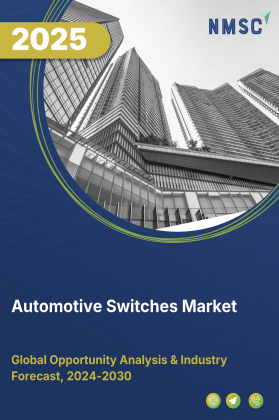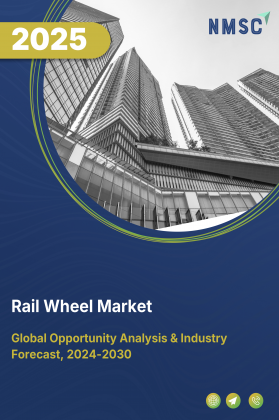
Hydrogen Combustion Engine Market by Technology (Proton Exchange Membrane (PEM) Fuel Cells, Phosphoric Acid Fuel Cells (PAFC), Solid Oxide Fuel Cells (SOFC), Alkaline Fuel Cells (AFC), and Others), by Application (Transportation, Power Generation, and Others), by Value Chain Position (Hydrogen Producers, Engine Manufacturers, Fuel Cell Suppliers, and Vehicle OEMs) – Global Opportunity Analysis and Industry Forecast, 2024– 2030
Hydrogen Combustion Engine Market Overview
The global Hydrogen Combustion Engine Market size was valued at USD 18.22 billion in 2023 and is predicted to reach USD 35.01 billion by 2030 with a CAGR of 9.8% from 2024-2030. The global hydrogen combustion market refers to the industry segment focused on the utilization of hydrogen as a fuel source in combustion processes. This market encompasses applications across sectors such as transportation, power generation, industrial processes, and residential heating.
Hydrogen fuel cells offer several benefits, including reduced emissions of greenhouse gases and pollutants, as well as enhanced energy efficiency compared to traditional fossil fuels. The market involves the production, distribution, and utilization of hydrogen-based combustion technologies, including hydrogen engines, turbines, boilers, and furnaces. As the world transitions towards cleaner and more sustainable energy sources, the global hydrogen combustion market is poised for significant growth and innovation.
Market Dynamics and Trends
The worldwide growing demand for eco-friendly transportation solutions is driving the hydrogen combustion engine market trends as these engines provide a clean energy alternative that emits only water vapor and helps reduce greenhouse gas emissions. To address this demand, companies across the globe are introducing hydrogen fuel systems designed to power these combustion engines efficiently.
For instance, in December 2023, Marelli launched a hydrogen fuel system designed for hydrogen engines, aiming to promote eco-friendly mobility options. By harnessing hydrogen as its primary fuel source, these engines offer a viable alternative with zero emissions, thereby driving the market.
Moreover, the increasing investments in renewable power across the globe further drives the market by promoting green hydrogen production that serves as a clean fuel for these engines. According to the data from the International Energy Agency (IEA), the global investment in renewable power rose from USD 596 billion in 2022 to USD 659 billion in 2023. This synergy between renewable power and hydrogen technology fosters sustainability and reduces dependence on fossil fuels, thus propelling the hydrogen combustion engine market growth.
Additionally, the global technological advancements in hydrogen combustion engine are another factor driving the market by enabling innovations in hydrogen production, storage, and combustion technologies, that in turn reduce the costs of hydrogen engines. These advancements contribute to the development of a more extensive hydrogen infrastructure, facilitating wider adoption and integration of hydrogen combustion engines into various applications.
For example, in January 2024, Bosch launched a hydrogen combustion engine, that aims to provide a sustainable alternative to traditional internal combustion engines. Similarly, in July 2024, Triton EV launched a hydrogen internal combustion engine (ICE) designed for a wide range of vehicles, from compact cars to large commercial trucks. These developments reflect the growing potential of hydrogen combustion technology in the global market.
However, the high cost of hydrogen production restraints the market by limiting the affordability and accessibility of hydrogen fuel, that is essential for operating these engines. On the contrary, the development of advanced hydrogen storage technologies, including solid-state hydrogen storage systems is expected to create a future opportunity for the hydrogen combustion engine market expansion.
Market Segmentations and Scope of the Study
The hydrogen combustion engine market report is segmented on the basis of technology, application, value chain position, end-user industry, and region. On the basis of technology, the market is classified into Proton Exchange Membrane (PEM) fuel cells, Phosphoric Acid Fuel Cells (PAFC), Solid Oxide Fuel Cells (SOFC), Alkaline Fuel Cells (AFC), and others. On the basis of application, the market is segmented into transportation, power generation, and others. On the basis of value chain position, the market is divided into hydrogen producers, engine manufacturers, fuel cell suppliers, and vehicle OEMs. On the basis of end-user industry, the market is distributed into automotive, aerospace & defense, energy & power, marine, and others. The regional breakdown includes regions such as North America, Europe, Asia-Pacific, and the Rest of the World (RoW).
Geographical Analysis
Asia-Pacific dominates the global hydrogen combustion engine market share and is expected to continue its dominance during the forecast period. This is attributed to the surge in government initiatives aimed at adopting cleaner transportation solutions. According to the data provided by the International Energy Agency (IEA) 2023, China is expected to bring 50000 hydrogen fuel-cell vehicles on the road by 2025 and build hydrogen refueling stations by 2035. This highlights the region's commitment to embrace hydrogen technology crucial in propelling the growth of the market across the region.
Moreover, the growth of the global hydrogen combustion engine market demand in the Asia-Pacific region is further driven by increasing awareness of environmental issues fueling demand for cleaner energy sources. According to the data from Carbon Brief, a website offering clear explanations and analysis on climate science and solutions, China witnessed a remarkable 40% year-on-year increase in clean energy investment, totaling an estimated USD 890 billion in 2023. Hydrogen combustion engines are emerging as a viable solution due to their capability to produce zero emissions, that significantly contributes to reduced pollution and a lower carbon footprint.
On the other hand, in the North American region, the market is steadily growing, fueled by the rising initiatives by companies including Cummins and JCB to reduce carbon emission. For instance, in May 2022, Cummins launched a hydrogen engine for long-haul trucking to reduce carbon emissions. The company invested in hydrogen fuel cell technology and is working on a prototype engine that uses hydrogen as a fuel. Additionally, in March 2023, JCB launched a new hydrogen combustion engine aimed at reducing carbon emissions. These initiatives by companies to explore cleaner alternatives are boosting the market.
Also, increasing government investment in hydrogen projects further drives the market in the region by enhancing the development and deployment of hydrogen technologies. For instance, in March 2024, the U.S. Department of Energy (DOE) announced a USD 750 million grant to support 52 hydrogen projects across 24 states. By providing financial support and accelerating innovation, government support fosters a more favorable environment for hydrogen adoption, stimulating industry growth.
Competitive Landscape
Various key players operating in the global hydrogen combustion engine industry include Toyota Motor Corporation, Honda Motor Co., Ltd., Bosch, Cummins Inc., NamX, Mercedes-Benz Group AG, MAN Energy Solutions USA Inc., Volvo Cars, Suzuki Motor Corporation, and Kawasaki. These market players continue to adopt various market development strategies including product launches to maintain their dominance in the market.
For instance, in June 2024, Honda commenced production of its hydrogen fuel cell-powered CR-V e: FCEV at its performance manufacturing center in Marysville, Ohio. This strategy is a part of Honda’s plans to achieve carbon neutrality by 2050 and transition to 100% zero-emission vehicle sales by 2040.
Also, in January 2024, Bosch announced to launch a liquid hydrogen engine by 2024. The engine is expected to provide diesel-like performance for heavy-duty transportation applications such as long-haul trucking, construction machinery, and other heavy-duty vehicles.
Additionally, in December 2022, Toyota launched a prototype hydrogen combustion road car, the Corolla Cross Hydrogen Concept. This vehicle is being tested and evaluated, showcasing hydrogen combustion as an alternative path to zero emissions.
Key Benefits
-
The report provides quantitative analysis and estimations of the global hydrogen combustion engine industry from 2024 to 2030, which assists in identifying the prevailing market opportunities.
-
The study comprises a deep-dive analysis of the current and future hydrogen combustion engine market trends to depict prevalent investment pockets in the market.
-
Information related to key drivers, restraints, and opportunities and their impact on the global market is provided in the report.
-
Competitive analysis of the players, along with their market share is provided in the report.
-
SWOT analysis and Porter's Five Forces model is elaborated in the study.
-
Value chain analysis in the market study provides a clear picture of the roles of stakeholders
Hydrogen Combustion Engine Market Key Segments
By Application
-
Transportation
-
Power Generation
-
Others
By Technology
-
Proton Exchange Membrane (PEM) Fuel Cells
-
Phosphoric Acid Fuel Cells (PAFC)
-
Solid Oxide Fuel Cells (SOFC)
-
Alkaline Fuel Cells (AFC)
By Value Chain Position
-
Hydrogen producers
-
Engine manufacturers
-
Fuel cell suppliers
-
Vehicle OEMs
By End-user Industry
-
Automotive
-
Aerospace & Defense
-
Energy & Power
-
Marine
-
Others
By Region
-
North America
-
The U.S.
-
Canada
-
Mexico
-
-
Europe
-
The UK
-
Germany
-
France
-
Italy
-
Spain
-
Denmark
-
Netherlands
-
Finland
-
Sweden
-
Norway
-
Russia
-
Rest of Europe
-
-
Asia-Pacific
-
China
-
Japan
-
India
-
South Korea
-
Australia
-
Indonesia
-
Singapore
-
Taiwan
-
Thailand
-
Rest of Asia-Pacific
-
-
RoW
-
Latin America
-
Middle East
-
Africa
-
REPORT SCOPE AND SEGMENTATION:
|
Parameters |
Details |
|
Market Size in 2023 |
USD 18.22 Billion |
|
Revenue Forecast in 2030 |
USD 35.01 Billion |
|
Growth Rate |
CAGR of 9.8% from 2024 to 2030 |
|
Analysis Period |
2023–2030 |
|
Base Year Considered |
2023 |
|
Forecast Period |
2024–2030 |
|
Market Size Estimation |
Billion (USD) |
|
Growth Factors |
|
|
Countries Covered |
28 |
|
Companies Profiled |
10 |
|
Market Share |
Available for 10 companies |
|
Customization Scope |
Free customization (equivalent up to 80 working hours of analysts) after purchase. Addition or alteration to country, regional, and segment scope. |
|
Pricing and Purchase Options |
Avail customized purchase options to meet your exact research needs. |
Key Players
-
Toyota Motor Corporation
-
Honda Motor Co., Ltd.
-
Bosch
-
Cummins Inc.
-
NamX
-
Mercedes-Benz Group AG
-
MAN Energy Solutions USA Inc.
-
Volvo Cars
-
Suzuki Motor Corporation
-
Kawasaki




















 Speak to Our Analyst
Speak to Our Analyst

























